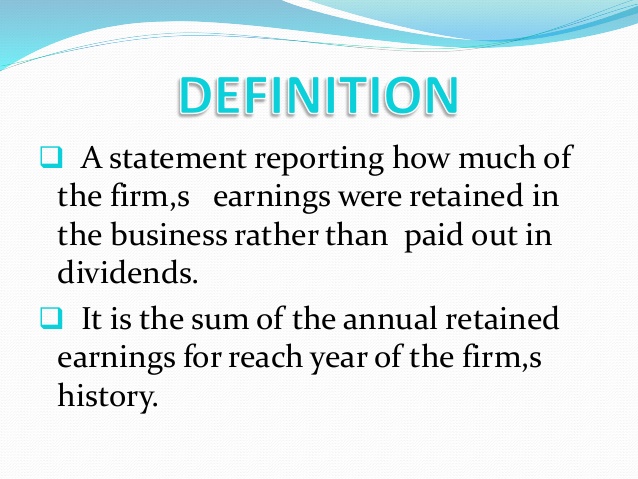
In addition to promoting accuracy, using the right technology should translate to fewer billable hours because it can save time. Calling references will allow you to get a handle on what their experiences have been like and help you choose the right firm for your needs. These are important distinctions that might be overlooked when using a standard COA as opposed to a dental industry COA. It aids in the maintenance of a hassle-free flow of collections and expenditures and allows you to easily spot late payments/reimbursements or wasteful expenses. Having a professional who can assess these arenas see where there can be a deduction of taxes, or reduction in equipment & medical costs can be done.
It’s confusing and time-consuming to try and remember which purchases or deposits belong to the business. That makes it a hassle to get a clear view of the company’s financial status. And when it comes to your taxes, it complicates matters even further. Knowing the financial health of your practice gives you the clarity to make informed decisions. We have a professionally trained support team on board that are available 24 hours a day, 7 days a week to answer your inquiries and address your issues.
What is the reconciliation Process?
Reconciliations are important because they can help catch overdraft transactions and fraudulent financial activity. Although this isn’t something technical or hard to understand. I see more startups and business owners struggle with keeping business and personal expenses clearly defined and separate from each other than any other thing regarding bookkeeping. The accrual method is more commonly used because it gives a more realistic idea of income and expenses over a period of time.
On the other hand, most dentists take comfort in knowing they have hired someone who does dental bookkeeping every day to handle their information. Accounting and perhaps bookkeeping is a profession, not a hobby. QuickBooks, Xero, Waveapps, etc. all make you feel like you are a bookkeeper but didn’t you go to a zillion years of school to be a dental bookkeeper… you put all that hard work in to be a dentist. Let’s look at the differences between bookkeepers and accountants.
A Guide On Dental Bookkeeping
While we can enter and code transactions as bookkeepers, we provide the most value as accountants (think Warren Buffet) by telling you what your financial statements mean rather than creating them. At Titan Web Agency, we partner with dental practices to help them market their businesses to reach more patients and increase their profits. That includes providing advice in relation to the financial aspects of managing a dental practice. That’s why we’ve created this guide to help you select the best dental bookkeeping firm to help grow your practice. Dental Bookkeeping knows that the last thing you want to be worrying about is complicated payroll and tax procedures and we’re here to take that burden off your shoulders!
Cutting these extra expenses will help you organize your actual required costs much better. Minimize your tax liability and maximize financial stability with a well-devised plan. A well-thought-out tax plan helps you stay financially secure in the long run. The platform also integrates with popular applications such as QuickBooks, PayPal, and Stripe so that users can easily manage their accounts from one location. Additionally, Zoho Books has dedicated customer support available to help troubleshoot any issues that arise while using the software. In the cash accounting method, revenue is only recorded when you receive the actual payment and expense is recorded the same way in which you only recognize it when the cash actually leaves your hand.
Bookkeepers Versus Accountants
QuickBooks also offers features specifically designed for dentists, such as automatic billing and collections, so practitioners can focus on running their practice rather than chasing payments. While things like accounts receivable, cash on hand, and Inventory are all categorized as assets. Under every balance sheet, the accounting principle must remain true that liabilities + owner’s equity must always equal assets. To reconcile your account means making sure that all the transactions in your QuickBooks match up to the transactions in your bank statement and that there are no disparities between the two.
- While we can enter and code transactions as bookkeepers, we provide the most value as accountants (think Warren Buffet) by telling you what your financial statements mean rather than creating them.
- One of the biggest and most important of those responsibilities is bookkeeping.
- Luckily, Dental Bookkeeping has many combined years of expertise in this area and you can rest easy knowing that your finances are in very qualified hands.
- Contact a dental bookkeeping specialist today to help you organize your books.
- Do you really miss hearing the beep of QuickBooks after each entry?
Tyson Downs, the owner of Titan Web Agency, has years of experience working with small businesses and helping them meet their revenue goals. Prior to starting Titan Web Agency, he freelanced in SEO and Web Design while working in the corporate world. Tyson is a graduate of Brigham Young University, the father of 5, and enjoys spending time with his family. A local bookkeeper can come into your office if you prefer or access your accounts remotely. You’ll have the option to meet them in person and visit their offices if necessary.
Consider All Financial Decisions Thoughtfully
You can either use the cash accounting method or you can go with the accrual accounting method. For example, you should know what terms like accounts receivables, owner equity, distribution of profit, opening balance equity, general ledger, journal entries etc mean. Now that you know what bookkeeping is and why it’s important you might be wondering How do I actually do bookkeeping for my Dental office? Don’t worry In this guide I’ll take you through the whole process and teach you what you need to know to become a bookkeeping guru. And while it can be easy to start neglecting certain portions of your business, it’s important that you always stay at least two steps ahead when it comes to your accounting.

This Site may contain references to certain laws and regulations which may change over time and should be interpreted only in light of particular circumstances. As such, information on this Site does NOT constitute professional accounting, tax or legal advice and should not be interpreted as such. Our consultation fee is $250 for 40 minutes with a Partner or an experienced Tax Manager. If we decide to press forward with a Business Advisory or Tax Patrol Services engagement, we will credit the consultation fee towards those services.
Close Your Books The Right Way
A question we often hear has to do with whether it’s best to hire a dental accountant or a dental bookkeeper. The short answer is that you probably need both because they serve different purposes. So while the earlier suggestion of adopting cloud-based dental accounting software is effective at cutting down on paper, it doesn’t eliminate the need to keep certain documents.
When tackling bookkeeping for your small business, it’s difficult to keep up with all the tax guidelines you’ll have to follow which is why many business owners choose to hire a dental CPA or accounting firm. However, outsourcing can be costly for a small dental office. QuickBooks has been found to be the best solution for dental practices. It’s simple to use and to enter information and the practice’s financial situation is accurate and can be created in a timely manner.
What to Consider When Choosing a Dental Bookkeeping Firm
These documents provide an overview of how much money comes in and goes out of your business monthly or yearly. Accurate financial records are essential for ensuring that your tax preparation is up-to-date and that you report precise information on all government forms. As an office manager, you can manage your finances correctly by taking the time to understand why bookkeeping matters for your dental practice and what should be included in a comprehensive system.
If they respond professionally and encourage reviewers to contact them for one-on-one assistance, then it’s a good sign that they respect their clients and will respect you. If they don’t respond at all or respond defensively, you should look elsewhere to find the bookkeeping help you need. Dental bookkeeping Their job is one that’s ongoing throughout the year and provides your accountant with the information they need to analyze your finances, provide tax planning tips, and so on. Combining business and personal transactions might not seem like a big deal until you have to sort through them.
Dental Practice Management Software Market Size on Target to … – GlobeNewswire
Dental Practice Management Software Market Size on Target to ….
Posted: Tue, 25 Apr 2023 07:00:00 GMT [source]
Plus, come tax time, you’re going to want a knowledgeable expert who can effectively assess your deductions and credits. Having a dedicated accountant serves as another set of eyes on your financials and helps to remedy that human error from insurance companies and staff. By understanding your practice’s financial data on the whole, you can make better informed choices that support the growth and success of your business for the long term. Hiring a dental bookkeeping firm to keep financial records and help you achieve your practice growth goals is a good investment. You can use this guide to research bookkeeping firms, evaluate their services, and choose the right bookkeeper for your practice.
